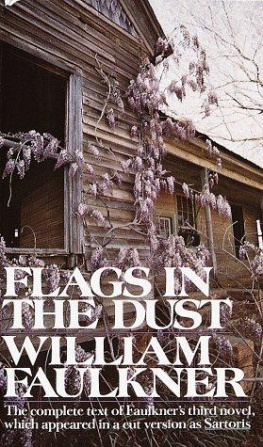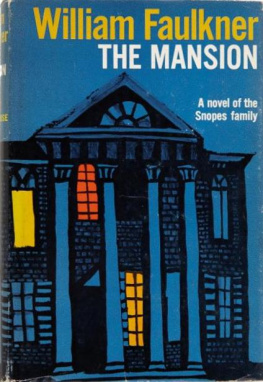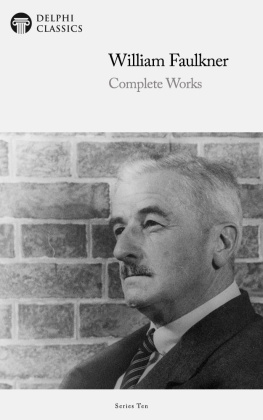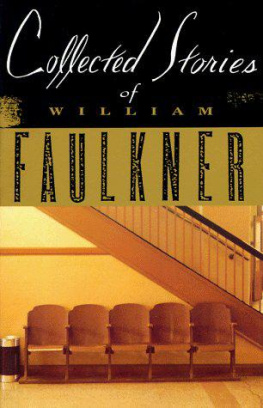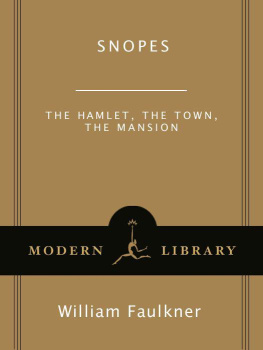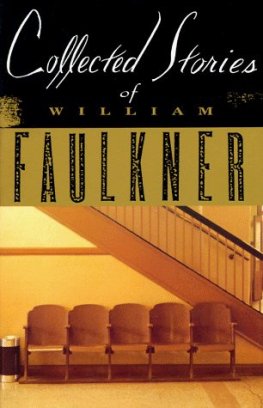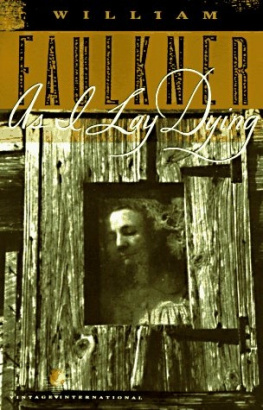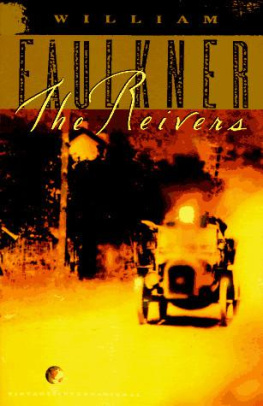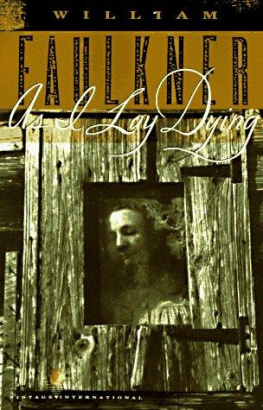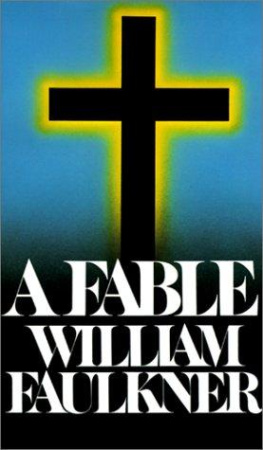William Faulkner - As I Lay Dying
Here you can read online William Faulkner - As I Lay Dying full text of the book (entire story) in english for free. Download pdf and epub, get meaning, cover and reviews about this ebook. year: 2011, publisher: Vintage, genre: Humor. Description of the work, (preface) as well as reviews are available. Best literature library LitArk.com created for fans of good reading and offers a wide selection of genres:
Romance novel
Science fiction
Adventure
Detective
Science
History
Home and family
Prose
Art
Politics
Computer
Non-fiction
Religion
Business
Children
Humor
Choose a favorite category and find really read worthwhile books. Enjoy immersion in the world of imagination, feel the emotions of the characters or learn something new for yourself, make an fascinating discovery.

- Book:As I Lay Dying
- Author:
- Publisher:Vintage
- Genre:
- Year:2011
- Rating:4 / 5
- Favourites:Add to favourites
- Your mark:
- 80
- 1
- 2
- 3
- 4
- 5
As I Lay Dying: summary, description and annotation
We offer to read an annotation, description, summary or preface (depends on what the author of the book "As I Lay Dying" wrote himself). If you haven't found the necessary information about the book — write in the comments, we will try to find it.
As I Lay Dying — read online for free the complete book (whole text) full work
Below is the text of the book, divided by pages. System saving the place of the last page read, allows you to conveniently read the book "As I Lay Dying" online for free, without having to search again every time where you left off. Put a bookmark, and you can go to the page where you finished reading at any time.
Font size:
Interval:
Bookmark:
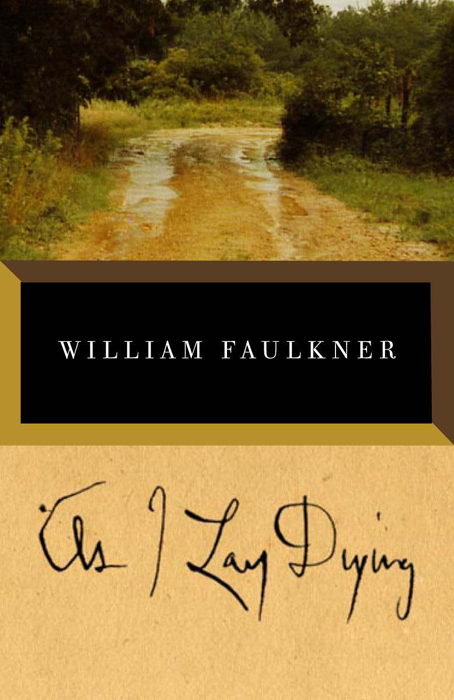
WILLIAM FAULKNERS WORKS
T HE M ARBLE F AUN (1924)
S OLDIERS P AY (1926)
M OSQUITOES (1927)
S ARTORIS (1929)
[F LAGS IN THE D UST (1973)]
T HE S OUND AND THE F URY (1929)
A S I L AY D YING (1930)
S ANCTUARY (1931)
T HESE 13 (1931)
L IGHT IN A UGUST (1932)
A G REEN B OUGH (1933)
D OCTOR M ARTINO AND O THER S TORIES (1934)
P YLON (1935)
A BSALOM , A BSALOM! (1936)
T HE U NVANQUISHED (1938)
T HE W ILD P ALMS [I F I F ORGET T HEE J ERUSALEM ] (1939)
T HE H AMLET (1940)
G O D OWN , M OSES AND O THER S TORIES (1942)
I NTRUDER IN THE D UST (1948)
K NIGHTS G AMBIT (1949)
C OLLECTED S TORIES OF W ILLIAM F AULKNER (1950)
N OTES ON A H ORSETHIEF (1951)
R EQUIEM FOR A N UN (1954)
A F ABLE (1954)
B IG W OODS (1955)
T HE T OWN (1957)
T HE M ANSION (1959)
T HE R EIVERS (1962)
U NCOLLECTED S TORIES OF W ILLIAM F AULKNER (1979, POSTHUMOUS )
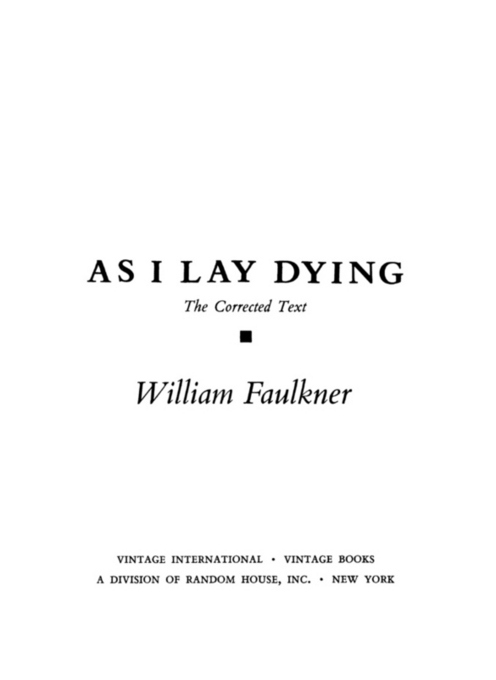

F IRST V INTAGE I NTERNATIONAL E DITION , O CTOBER 1990
Copyright 1930 by William Faulkner
Copyright renewed 1957 by William Faulkner
Notes copyright 1985 by Literary Classics of the United States, Inc.
All rights reserved under International and Pan-American Copyright Conventions. Published in the United States by Vintage Books, a division of Random House, Inc., New York, and simultaneously in Canada by Random House of Canada Limited, Toronto. Originally published by Jonathan Cape & Harrison Smith, Inc., in 1930. This revised text and the notes are reprinted from Novels 19301935 by William Faulkner, published by The Library of America, 1985, by permission.
Library of Congress Cataloging-in-Publication Data
Faulkner, William, 18971962.
As I lay dying : the corrected text / William Faulkner
1st Vintage international ed.
p. cm.(Vintage international)
eISBN: 978-0-307-79216-7
I. Title.
[PS3511.A86A85 1990]
813.52dc20 9050261
v3.1_r1

This edition follows the text of As I Lay Dying as corrected in 1985. The copy-text for this edition is Faulkners ribbon setting copy, whichunder the direction of Noel Polkhas been compared with the holograph manuscript and carbon typescript. An editors note on the corrections by Noel Polk follows the text; the line and page notes have been prepared by Joseph Blotner.
To Hal Smith

Jewel and I come up from the field, following the path in single file. Although I am fifteen feet ahead of him, anyone watching us from the cottonhouse can see Jewels frayed and broken straw hat a full head above my own.
The path runs straight as a plumb-line, worn smooth by feet and baked brick-hard by July, between the green rows of laidby cotton, to the cottonhouse in the center of the field, where it turns and circles the cottonhouse at four soft right angles and goes on across the field again, worn so by feet in fading precision.
The cottonhouse is of rough logs, from between which the chinking has long fallen. Square, with a broken roof set at a single pitch, it leans in empty and shimmering dilapidation in the sunlight, a single broad window in two opposite walls giving onto the approaches of the path. When we reach it I turn and follow the path which circles the house. Jewel, fifteen feet behind me, looking straight ahead, steps in a single stride through the window. Still staring straight ahead, his pale eyes like wood set into his wooden face, he crosses the floor in four strides with the rigid gravity of a cigar store Indian dressed in patched overalls and endued with life from the hips down, and steps in a single stride through the opposite window and into the path again just as I come around the corner. In single file and five feet apart and Jewel now in front, we go on up the path toward the foot of the bluff.
Tulls wagon stands beside the spring, hitched to the rail, the reins wrapped about the seat stanchion. In the wagon bed are two chairs. Jewel stops at the spring and takes the gourd from the willow branch and drinks. I pass him and mount the path, beginning to hear Cashs saw.
When I reach the top he has quit sawing. Standing in a litter of chips, he is fitting two of the boards together. Between the shadow spaces they are yellow as gold, like soft gold, bearing on their flanks in smooth undulations the marks of the adze blade: a good carpenter, Cash is. He holds the two planks on the trestle, fitted along the edges in a quarter of the finished box. He kneels and squints along the edge of them, then he lowers them and takes up the adze. A good carpenter. Addie Bundren could not want a better one, a better box to lie in. It will give her confidence and comfort. I go on to the house, followed by the
Chuck. Chuck. Chuck.
of the adze.

So I saved out the eggs and baked yesterday. The cakes turned out right well. We depend a lot on our chickens. They are good layers, what few we have left after the possums and such. Snakes too, in the summer. A snake will break up a hen-house quicker than anything. So after they were going to cost so much more than Mr Tull thought, and after I promised that the difference in the number of eggs would make it up, I had to be more careful than ever because it was on my final say-so we took them. We could have stocked cheaper chickens, but I gave my promise as Miss Lawington said when she advised me to get a good breed, because Mr Tull himself admits that a good breed of cows or hogs pays in the long run. So when we lost so many of them we couldnt afford to use the eggs ourselves, because I could not have had Mr Tull chide me when it was on my say-so we took them. So when Miss Lawington told me about the cakes I thought that I could bake them and earn enough at one time to increase the net value of the flock the equivalent of two head. And that by saving the eggs out one at a time, even the eggs wouldnt be costing anything. And that week they laid so well that I not only saved out enough eggs above what we had engaged to sell, to bake the cakes with, I had saved enough so that the flour and the sugar and the stove wood would not be costing anything. So I baked yesterday, more careful than ever I baked in my life, and the cakes turned out right well. But when we got to town this morning Miss Lawington told me the lady had changed her mind and was not going to have the party after all.
She ought to taken those cakes anyway, Kate says.
Well, I say, I reckon she never had no use for them now.
She ought to taken them, Kate says. But those rich town ladies can change their minds. Poor folks cant.
Riches is nothing in the face of the Lord, for He can see into the heart. Maybe I can sell them at the bazaar Saturday, I say. They turned out real well.
You cant get two dollars a piece for them, Kate says.
Well, it isnt like they cost me anything, I say. I saved them out and swapped a dozen of them for the sugar and flour. It isnt like the cakes cost me anything, as Mr Tull himself realises that the eggs I saved were over and beyond what we had engaged to sell, so it was like we had found the eggs or they had been given to us.
Font size:
Interval:
Bookmark:
Similar books «As I Lay Dying»
Look at similar books to As I Lay Dying. We have selected literature similar in name and meaning in the hope of providing readers with more options to find new, interesting, not yet read works.
Discussion, reviews of the book As I Lay Dying and just readers' own opinions. Leave your comments, write what you think about the work, its meaning or the main characters. Specify what exactly you liked and what you didn't like, and why you think so.

